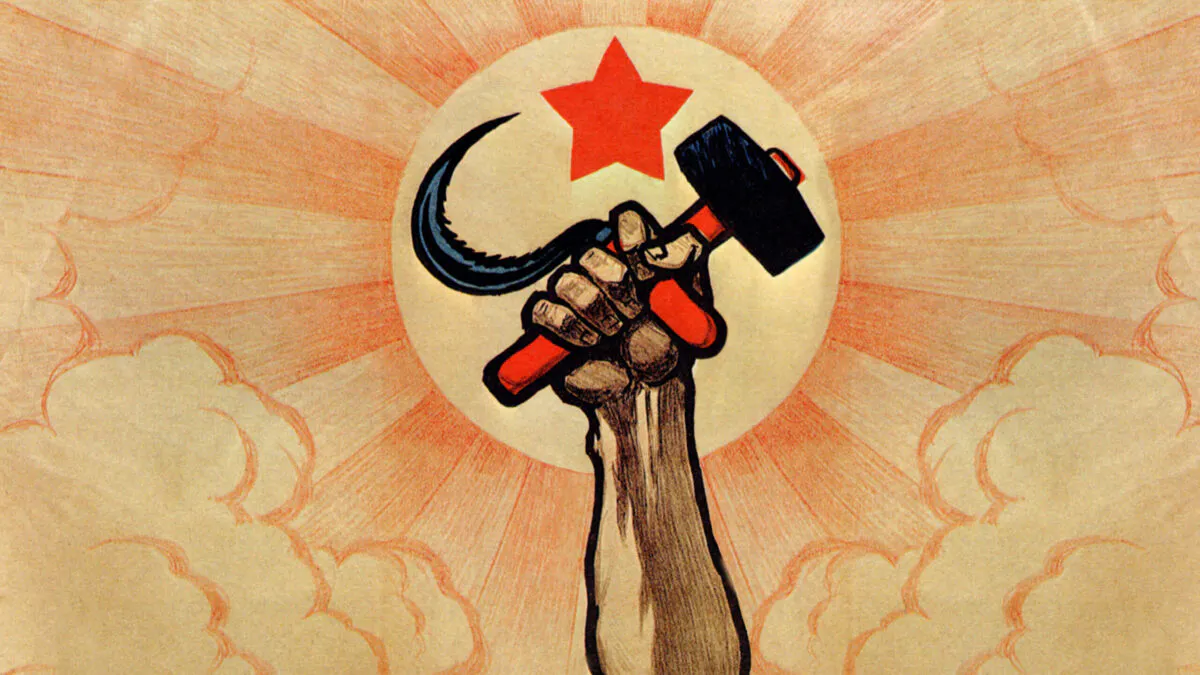The Chilean people took to the polls on Nov. 22 to elect a president. On this day at least, the best laid plans of mice and totalitarian communist regimes were thwarted.
Thirty years earlier, the dust had barely settled from the dramatic fall of the Berlin Wall, the symbol of 20th century communism, when Cuban dictator Fidel Castro gathered Latin America’s foremost left-wing political leaders in Sao Paulo, Brazil. Castro was alone among attendees in retaining political power in the region. After decades of ever-shifting geopolitical dynamics, East-West proxy wars, and the not-coincidental birth of the narco-trade in Latin America, U.S.-backed neoliberalism had won the day.
Yet today, complacency following the West’s victory over Soviet-style communism has blinded it to the rise of 21st century totalitarianism. Western neoliberal governments moved on from the Cold War as if the world’s autocrats and Marxists had accepted defeat graciously, abandoned their ideology, and found something else to do with their time.
Leftist leaders instead set about to find better ways of doing business. From Moscow to Beijing to Havana, the left charted a course not to defeat democracy and tear down its market-based principles through direct confrontation, but to manipulate electoral systems in fledgling democracies, flood Western universities with Marxist ideology, and use rapidly expanding global corporate and banking sectors to finance its meteoric rise from the ash heap of history.
To that end, in what became known as the Sao Paulo Forum, Castro and the other leaders from leftist Latin American parties plotted their comeback in annual strategy sessions. The forum’s first victory came in 1999 with the election of Hugo Chavez in Venezuela. Evo Morales in Bolivia, Daniel Ortega in Nicaragua and Andres Manuel Lopez Obrador in Mexico, among others, followed. Today, the ruling parties in Argentina, the Dominican Republic, Panama, Peru, Saint Lucia, Cuba, Venezuela, Nicaragua, Mexico and Bolivia, as well as the incoming government in Honduras, all are members of the Sao Paulo Forum.
Since 1990, when Castro’s Cuba was the only leftist regime in power in Latin America, communist-backed parties have gained control of approximately half of the governments in the region. Closer geographically to the United States, only Guatemala, El Salvador and Costa Rica remain non-members of the Forum in Central America. For its part, El Salvador and its protean leader Nayib Bukele (pictured) have fallen under the siren spell of the Chinese Communist Party in the past year.
The U.S. response to the rising red tide to its south has been largely passive. The same national security apparatus that once fought bloody proxy wars in Central America to stop the advance of communism one inch north of Nicaragua now idly watches Mexico slip incrementally toward socialism as its massive, state-protected criminal organizations flood U.S. streets with China-sourced fentanyl and methamphetamine. The decades-long U.S. reluctance to address the extent of corruption in the Mexican political system has reaped catastrophic consequences.
Farther south, China has taken advantage of the astonishing Biden administration indifference toward two historical migrant source countries, Honduras and El Salvador, amid a historic immigration crisis. The Biden administration has steadfastly refused to engage either country diplomatically, and El Salvador’s Bukele has in turn taken significant steps both toward autocratic rule at home and China-backed unification with its Honduran neighbors. Honduras, which is developing a rapid rail system connecting the Caribbean Sea and Pacific Ocean as a Panama Canal shipping alternative, figures to be a key commercial hub for Chinese Communist Party expansion into Central America.
Yet the CCP is not the greatest threat to democracy in the region. The Sao Paulo Forum continues to acquire chess pieces, with its latest targets being Chile and Colombia. In 2019, operatives from Cuba and Venezuela organized a series of violent Marxist-style worker riots in the southern Chilean province of Capitan Prat. The Chilean government discovered the plot after a top Cuban intelligence officer defected and revealed that Cuba and Venezuela had planned the riots to push Chile, a historically market-based economy, toward autocratic socialism. Fifty Cuban and Venezuelan operatives were subsequently expelled from the country. In 2021, the Colombian government discovered extensive and similar Cuban and Venezuelan involvement in a series of riots organized in Cali. Colombia will elect its next president in May 2022.
Another part of Sao Paulo Forum strategy appears to be the perpetuation of the U.S. border crisis as a smokescreen. Whereas most migrant encounters by U.S. border patrol in the first half of 2021 involved citizens of Mexico, El Salvador or Honduras, recently much larger and better organized caravans have been staged in Panama, a country led by a forum party, and have focused on a single port of entry in Del Rio, Texas. While the media have characterized the caravans as composed of Haitian refugees, most of the migrants are moving north from South America rather than Haiti and are mixed with Cubans, Peruvians and Venezuelans, all three forum countries. As the U.S. tears itself apart from within, in part over the politics of immigration and border security, forum participants move free from U.S. interference behind the border crisis smokescreen.
While the U.S. may not yet be paying attention, the freedom-loving people of Chile have been. In their Nov. 22 presidential election, more than half of Chileans voted against leftist candidates. The presidential election now goes to a Dec. 19 runoff, but the Cuba/Venezuela-organized riots have, thus far, failed to move Chile to the ranks of Latin American socialist states.
The U.S. should recognize the Chilean rejection of socialism as an opportunity for reengagement in the evergreen struggle between democracy and totalitarianism. It should wake to the growing threat to its south, and, with its allies, return to the business of supporting fledgling democracies around the world.
The views expressed in this piece are the author’s own and do not necessarily represent those of The Daily Wire.
Josh Jones is a senior fellow on border security for the Texas Public Policy Foundation.

.png)
.png)

